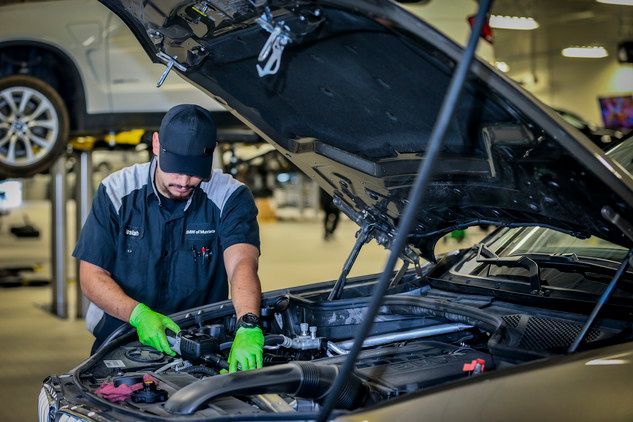
Your morning routine shouldn’t include crossing your fingers and hoping your car starts. Whether you’re navigating rush hour traffic or making that important client meeting, your vehicle needs to deliver consistent performance day after day.
A reliable commuter car does more than just get you from point A to point B—it provides peace of mind, saves money on unexpected repairs, and keeps your schedule on track. Let’s explore the essential elements that make a vehicle dependable for daily driving and how you can maintain that reliability over time.
Essential Components for Daily Reliability
Engine Health: The Heart of Your Vehicle
Your engine is the most critical component for reliable daily performance. Regular oil changes, proper coolant levels, and clean air filters ensure your engine runs smoothly through thousands of commute miles. A well-maintained engine not only starts reliably but also delivers consistent fuel efficiency, keeping your daily transportation costs predictable.
Signs of engine trouble include rough idling, unusual noises, or decreased acceleration. Addressing these symptoms early prevents minor issues from becoming major roadside emergencies during your morning commute.
Transmission Performance: Smooth Power Delivery
Your transmission plays a crucial role in daily driving reliability. Whether you drive an automatic or manual transmission, this system needs regular maintenance to ensure smooth gear changes and optimal power delivery. Transmission fluid should be checked regularly and replaced according to your manufacturer’s schedule.
Warning signs of transmission problems include delayed engagement, rough shifting, or slipping gears. If you notice these symptoms, consulting a qualified transmission shop in Salt Lake City or your local area can help diagnose issues before they leave you stranded.
Battery and Electrical System Reliability
Nothing ruins a morning commute like a dead battery. Your vehicle’s electrical system powers everything from the starter motor to the headlights, making it essential for reliable daily operation. Battery terminals should be clean and tight, and the battery itself should be tested regularly, especially before extreme weather seasons.
Modern vehicles rely heavily on electronic systems for engine management, safety features, and comfort amenities. Regular electrical system maintenance ensures these components work together seamlessly for consistent daily performance.
Maintenance Strategies for Commuter Cars
Following Service Schedules
Consistent maintenance is the foundation of reliable vehicle performance. Your owner’s manual contains specific service intervals based on mileage and time periods. Following these schedules prevents small issues from becoming major problems that could leave you without transportation.
Key maintenance items include oil changes, filter replacements, brake inspections, and fluid checks. While it might seem like an expense, regular maintenance costs far less than emergency repairs or the inconvenience of being stranded.
Addressing Issues Early
Your daily commute puts you in the best position to notice changes in your vehicle’s performance. Unusual sounds, vibrations, or changes in handling often signal developing problems. Addressing these early warning signs prevents minor issues from escalating into major failures.
Keep a maintenance log to track services and note any concerns. This documentation helps mechanics diagnose problems more efficiently and can reveal patterns that indicate underlying issues.
Choosing the Right Vehicle for Your Commute
Fuel Efficiency Considerations
Daily commuting adds up quickly in fuel costs. Vehicles with good fuel efficiency reduce your transportation expenses while also typically requiring less frequent stops for refueling. Consider your daily mileage, typical traffic conditions, and fuel type availability when selecting a commuter vehicle.
Hybrid and electric vehicles offer excellent fuel economy for city driving with frequent stops, while efficient gasoline engines might be better for highway-heavy commutes.
Comfort and Safety Features
Since you’ll spend significant time in your commuter vehicle, comfort features like supportive seats, climate control, and noise insulation improve your daily driving experience. Safety features such as reliable braking systems, good visibility, and modern safety technologies protect you during your regular travels.
Consider features that specifically address your commute conditions. If you drive in heavy traffic, features like adaptive cruise control can reduce fatigue. For winter commuting, all-wheel drive or traction control systems enhance safety and reliability.
Weather and Seasonal Considerations
Your commuter vehicle needs to perform reliably in all weather conditions throughout the year. Cold weather can strain batteries, thicken fluids, and affect tire performance. Hot weather can stress cooling systems and air conditioning components.
Seasonal maintenance helps ensure year-round reliability. This includes checking tire condition and pressure, testing the cooling system before summer heat, and ensuring the heating system works properly before winter arrives.
Regular tire maintenance is especially important for commuter vehicles. Proper inflation, adequate tread depth, and regular rotation ensure consistent traction and handling while maximizing tire life.
Creating Your Reliability Plan
Develop a systematic approach to maintaining your commuter vehicle’s reliability. This includes scheduling regular maintenance, budgeting for repairs and replacements, and establishing relationships with trusted service providers in your area.
Keep essential items in your vehicle for minor emergencies: jumper cables, basic tools, emergency contact information, and a first-aid kit. While these won’t prevent breakdowns, they can minimize disruption when issues occur.
Consider the total cost of ownership when making vehicle decisions. A reliable vehicle might cost more initially but often provides better value through reduced repair costs, better fuel economy, and greater peace of mind.
Building Long-Term Reliability
Reliable car performance for your daily commute doesn’t happen by accident—it requires consistent attention, proper maintenance, and smart decision-making. By focusing on key systems like the engine, transmission, and electrical components, you can minimize unexpected breakdowns and keep your transportation dependable.
Remember that investing in reliability today prevents costly emergencies tomorrow. Whether through regular maintenance, prompt repairs, or choosing the right vehicle for your needs, building reliable daily transportation is one of the most valuable investments you can make in your daily routine.